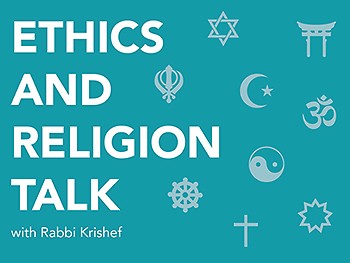Along the same line, Carol H. asks: I was a member of the UMC. In the “rulebook” it states both that all people are of sacred worth and the practice of homosexuality is not compatible with scripture. Is that saying a person can be gay as long as they keep it a secret?
Note from Rabbi Krishef: Last week’s responses came from panelists representing religious institutions who profess to be open to all, but nonetheless maintain that their scriptures forbid same-sex relationships. This week, we hear from those who search for or embrace an alternative position.
Rev. Ray Lanning, a retired minister of the Reformed Presbyterian Church of North America, responds:
“Welcome to the problems of the church militant in a time of great sea-changes in our society. Presbyterians are committed to work through such problems in ‘the courts of the church,’ deliberative assemblies of ministers and elders, each member having a voice and a vote. The process is tedious, sometimes raucous. The result almost always falls short of expectations. Flawed human beings make flawed decisions, but we trust our sovereign God will accomplish good things therewith.
“In my youth sex was rarely mentioned in our churches; gay sex, never! From hints dropped at home, from the culture around us, we got an idea that sex was bad, and gay sex, worse. So my generation of Presbyterians was not well prepared for the ‘sexual revolution.’ It was a jolt to the old order.
“At present, some Presbyterians are doubling down on old positions, others are champing at the bit for change. So the Lord’s host is deeply divided, pushed in opposite directions, sending mixed messages to the world. As your question implies, the situation imposes on gay church members the burden of living under an unwritten rule of ‘Don’t ask, don’t tell,’ out of love for Christ and His church.
“I don't know how this conflict can be resolved. I do know that the problem with LGBT issues is gay sex. Most straight people enjoy straight sex, and most gay people enjoy gay sex. Celibacy is a gift given only to some, straight or gay. But gay sex is an abomination to many Christians, and so we are at an impasse. Fear is also a factor: in the 1950s we were told by our national government that gay people are predators and a threat to children. Please be patient; none of this is easy for any of us.”
Ty Silzer, a former pastor in the Presbyterian Church in America, responds:
“Having spoken with LGBTQ Christian friends about this very topic: if said churches preach against or limit LGBTQ’s membership, involvement, participation, or practice, they aren’t ‘open and affirming;’ ‘welcoming’ is lip service. My friends say, ‘That’s OK—but they shouldn’t fool themselves, nor claim to be something they are not.’
“The UMC rulebook is citing 6-7 passages within the canon of Scripture. The basic reading of these would seem to side with their conclusions. But wearing different types of fabric is not compatible with scripture, nor is failing to greet all believers with a kiss, nor are the divorced. Scripture has to be interpreted, and we tend to interpret in favor of ourselves and our loved ones. It’s when ‘the other’ is foreign or unknown to us we tend to accept basic readings that don’t affect us instead of nuanced ones.”
The Reverend Colleen Squires, minister at All Souls Community Church of West Michigan, a Unitarian Universalist Congregation, responds:
“Unitarian Universalism uses the term Welcoming Congregation to designate that we are a congregation that is fully supportive of the LGBTQA+ community . This means we believe in full inclusion in our faith. All Rites of Passage including marriage, ordination, baby dedications, memorials services or serving our faith in any way would be available to all LGBTQA+ individuals.
“Our congregations must earn the right to use the Welcoming Congregation designation, we must be intentional about how we include everyone, we must show a sensitivity and thoughtfulness of including all people. A UU church can not simply hang a rainbow flag on the front of our building and say we are ‘Welcoming,’ we must complete an intense process and earn our right to hang our flags.
“I know there are several churches in Grand Rapids who say they are ‘friendly to the gay community’ yet these same churches do not offer marriage or ordination to the LGBTQA+ community - to me that is dishonest and not welcoming or friendly; it is confusing and painful.”
My response:
My stream of Judaism (Conservative) resolved this issue by deciding that human dignity trumps most of the Biblically derived prohibitions against same sex relationships. We ordain gay rabbis and officiate at same sex weddings. Being a welcoming congregation means welcoming the whole person. Institutions which do not do this should be honest about who they fully welcome and who they welcome only if they repress their innate sexuality.
This column answers questions of Ethics and Religion by submitting them to a multi-faith panel of spiritual leaders in the Grand Rapids area. We’d love to hear about the ordinary ethical questions that come up in the course of your day as well as any questions of religion that you’ve wondered about. Tell us how you resolved an ethical dilemma and see how members of the Ethics and Religion Talk panel would have handled the same situation. Please send your questions to [email protected].
The Rapidian, a program of the 501(c)3 nonprofit Community Media Center, relies on the community’s support to help cover the cost of training reporters and publishing content.
We need your help.
If each of our readers and content creators who values this community platform help support its creation and maintenance, The Rapidian can continue to educate and facilitate a conversation around issues for years to come.
Please support The Rapidian and make a contribution today.
